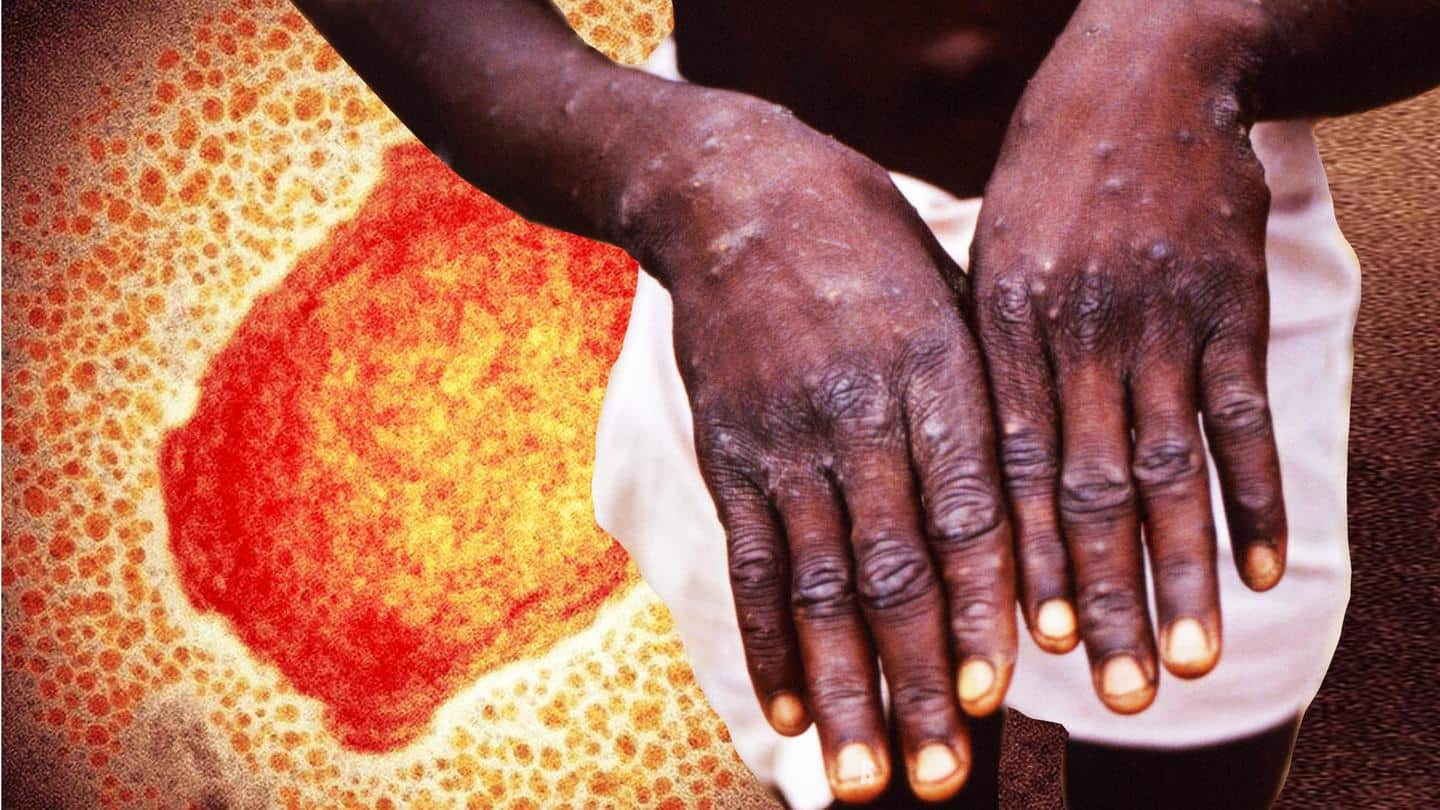
UK confirms monkeypox case: Know causes, symptoms, and treatment
What's the story
The United Kingdom has confirmed a case of the rare monkeypox infection.
The viral infection—said to have its roots in West Africa—was diagnosed in a person who recently traveled to Nigeria, the UK Health Security Agency (UKHSA) stated on Saturday.
The patient is being treated at Guy's and St. Thomas' NHS Foundation Trust's expert respiratory infectious disease unit in London.
Context
Why does this story matter?
Even as people are grappling with the deadly COVID-19 outbreak globally, sporadic incidences of other viruses like monkeypox have become a cause for concern.
Though monkeypox belongs to the same family as the smallpox-causing virus, it's less severe with lower chances of infection.
The World Health Organization says the mortality rate of monkeypox is up to 10%—with most deaths occurring in younger age groups.
Action
UKHSA to contact passengers who traveled with patient
The UKHSA stated, "As a precautionary measure, UKHSA experts are working closely with NHS [National Health Service] colleagues."
It added they "will be contacting people who might have been in close contact with the individual to provide information and health advice."
The agency will also contact passengers who traveled in close proximity to the patient on the same flight to the UK from Nigeria.
WHO says
What exactly is monkeypox?
Mostly transmitted to humans from animals, monkeypox is a viral zoonotic disease.
Most cases of the monkeypox infection are found in West and Central Africa.
According to the WHO, the monkeypox virus is similar to human smallpox.
Although monkeypox is said to be much milder than smallpox, with a mortality rate of up to 10%, it can be fatal in some rare cases.
History
First human case of monkeypox identified in 1970
The first case of human monkeypox was identified in 1970 in Congo (formerly known as Zaire) in a nine-year-old boy—two years after smallpox had been eradicated from the region.
Since then, most cases have been reported from rainforest regions of the Congo Basin. It's considered to be endemic there.
However, in 2017—40 years after its last confirmed case—Nigeria witnessed the biggest outbreak to date.
Past cases
Monkeypox cases in UK, US
In the UK, monkeypox was first seen in 2018; only a few cases have been confirmed since then.
In June 2021, the UK's North Wales reported two monkeypox cases in the same household. These would be only the fifth and sixth cases the UK ever recorded.
In July 2021, Texas in the US detected a case for the first time in nearly 20 years.
Causes
How do humans catch it?
If a person comes in direct contact with the blood, bodily fluids, or skin lesions of an infected animal, they are likely to contract monkeypox.
In Africa, human infections have been documented through the handling of infected monkeys, Gambian pouched rats, and squirrels.
Eating half-cooked meat and other products of an infected animal could also pose a risk.
Causes
Secondary or human-to-human transmission of monkeypox
Even though limited, secondary human-to-human transmission can result from close contact with the skin lesions of an infected person or objects recently contaminated by the patient.
It can be transmitted through respiratory particles via prolonged face-to-face contact.
Transmission can also happen via the placenta from mother to fetus—congenital monkeypox.
The biggest-ever documented community chain transmission witnessed six successive person-to-person infections, said the WHO.
Fever and rashes
Symptoms of monkeypox
According to the WHO, the incubation period is usually 7−14 days but can range between 5−21 days, too.
Following this, fever, rash, severe headache, backache, muscle aches (myalgia), intense asthenia (lack of energy), and swollen lymph nodes kick in.
Apart from the face, rashes affect palms of the hands, soles of the feet, oral mucous membranes, genitalia, conjunctivae, and cornea, as per the WHO.
WHO and CDC
Treatment and vaccine
Currently, there's no specific treatment recommended for monkeypox, says the WHO.
But the US CDC says monkeypox outbreaks can be controlled with the smallpox vaccine cidofovir—ST-246—and vaccinia immune globulin.
However, first-generation smallpox vaccines are no longer available to the public.
Notably, in 2019, a new vaccinia-based vaccine was approved for preventing smallpox and monkeypox but it isn't yet widely available, as per the WHO.